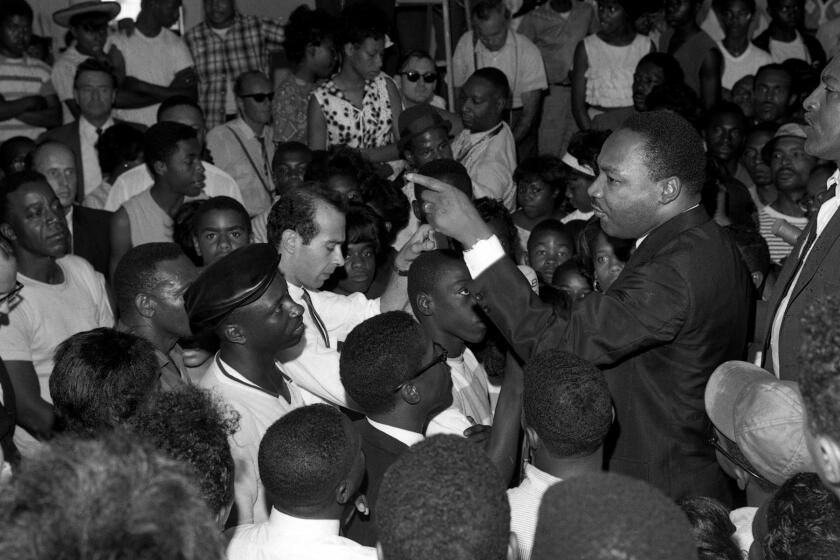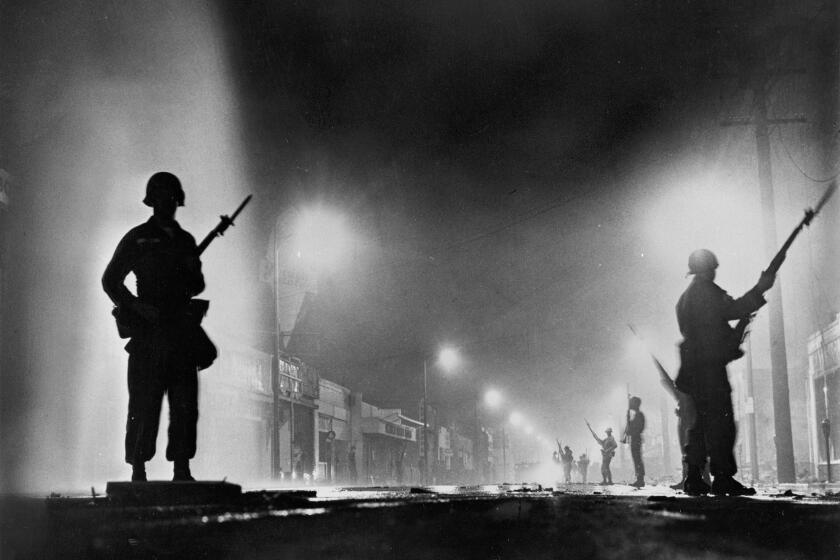Opinion: 50 years since Watts
The Times Opinion section reflects on the uprising that shook the streets of Los Angeles a half-century ago.
- 1
“The rioters were burning the city now, as the insane sometimes mutilate themselves,” wrote a Los Angeles Times reporter on Aug. 15, 1965.
- 2
To the editor: On Aug. 11, 1965, I was 18 years old, working the night shift in the basement credit department of the Sears store next to the Los Angeles Police Department’s Wilshire station.
- 3
It’s tempting to look at recent headlines about unarmed African Americans dying at the hands of police officers and conclude that little has changed since 1965, when a traffic stop and the arrest of Marquette Frye triggered what became known as the Watts riots.
- 4
The curious thing about riots is that they tend to erupt around a chance moment -- a perceived threat, a lone miscarriage of justice, one arrest too many, or a single act of violence freighted with history.
- 5
As we mark 50 years since the Watts riots, expect endless newsreel footage of buildings aflame and National Guard units occupying Central Avenue, experts rattling off gruesome statistics, eyewitness accounts of that stifling hot night on Aug. 11, 1965, when Marquette Frye’s drunk driving arrest became the flashpoint for one of the worst incidents of civil unrest in U.S. history.
- 6
At 7 p.m. on Thursday, Aug. 12, 1965, about 2,000 people gather at 116th and Avalon.
- 7
The small city of Watts offered African American workers an island of relatively affordable housing, unrestricted by racial covenants, in the early decades of the 20th century.
- 8
We look to anniversaries of momentous events — the beginning of World War I (100 years, last July), the end of the Civil War (150 years, in April), the voting rights march from Selma to Montgomery, Ala., (50 years, in March) — to note the passage of time, to measure the progress of the generations, to indulge in nostalgia.









